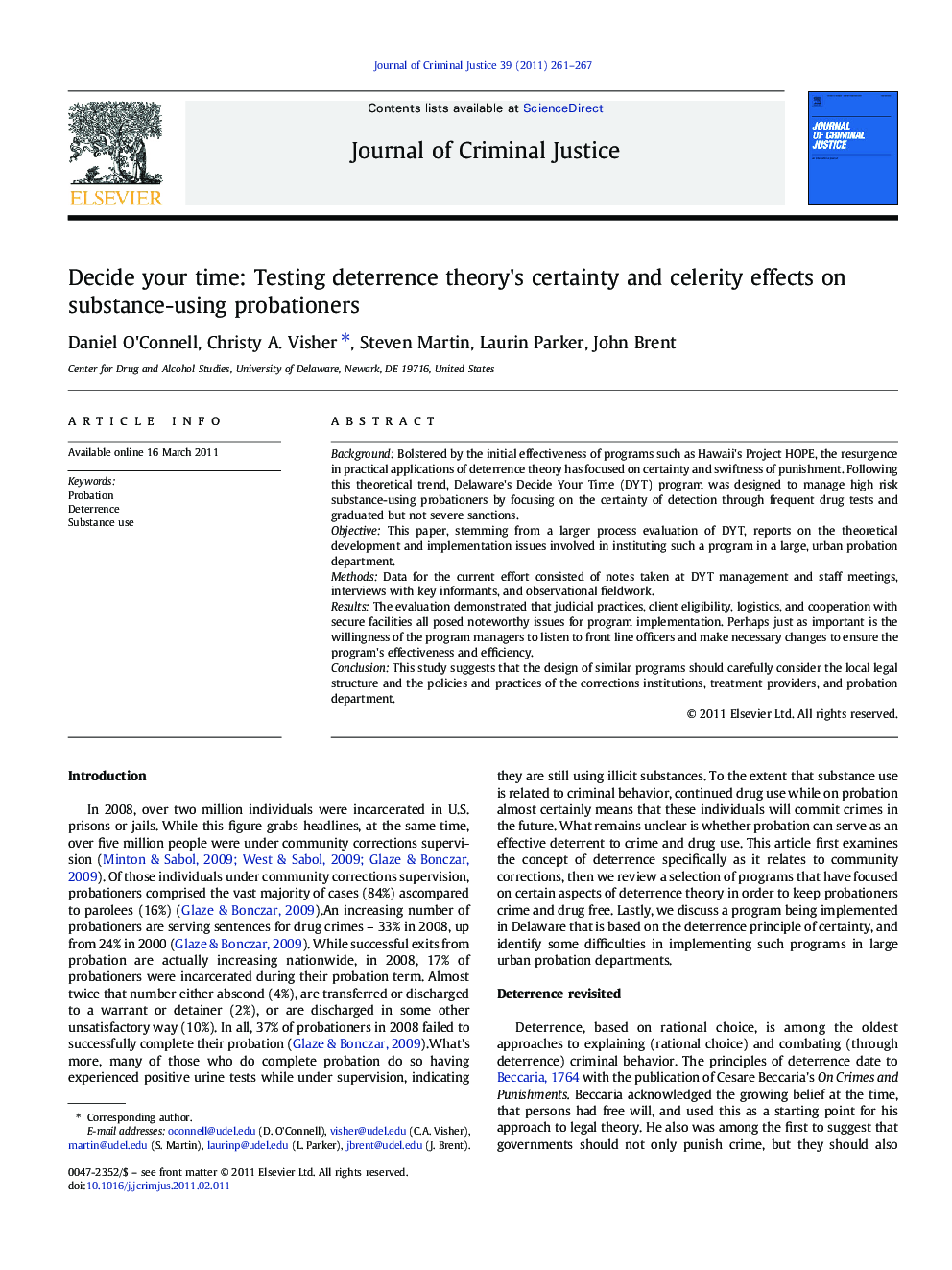| Article ID | Journal | Published Year | Pages | File Type |
|---|---|---|---|---|
| 882885 | Journal of Criminal Justice | 2011 | 7 Pages |
BackgroundBolstered by the initial effectiveness of programs such as Hawaii's Project HOPE, the resurgence in practical applications of deterrence theory has focused on certainty and swiftness of punishment. Following this theoretical trend, Delaware's Decide Your Time (DYT) program was designed to manage high risk substance-using probationers by focusing on the certainty of detection through frequent drug tests and graduated but not severe sanctions.ObjectiveThis paper, stemming from a larger process evaluation of DYT, reports on the theoretical development and implementation issues involved in instituting such a program in a large, urban probation department.MethodsData for the current effort consisted of notes taken at DYT management and staff meetings, interviews with key informants, and observational fieldwork.ResultsThe evaluation demonstrated that judicial practices, client eligibility, logistics, and cooperation with secure facilities all posed noteworthy issues for program implementation. Perhaps just as important is the willingness of the program managers to listen to front line officers and make necessary changes to ensure the program's effectiveness and efficiency.ConclusionThis study suggests that the design of similar programs should carefully consider the local legal structure and the policies and practices of the corrections institutions, treatment providers, and probation department.
Research Highlights► Describes Delaware's Decide Your Time (DYT) program. ► Theoretically built program based on certainty of punishment and graduated sanctions. ► Identifies complications initiating and implementing such a program like DYT. ► Need for programs to consider execution logistics and local legal structures.
